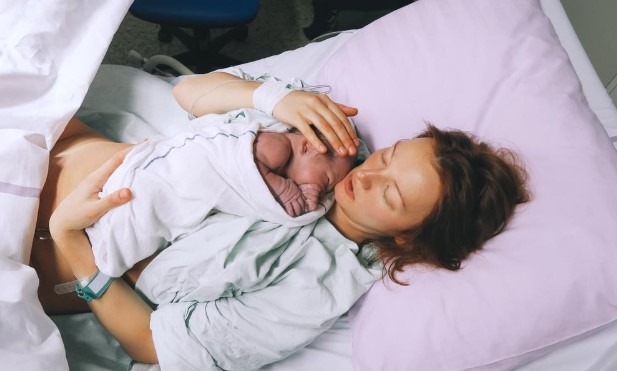Most people are aware of the risk of postpartum depression after welcoming a baby into the world. However, few people expect to experience postpartum anxiety.
As some of the symptoms can overlap with depression, it’s easy to receive the wrong diagnosis for your mental health condition.
The good news is, postpartum anxiety isn’t only common, but it is treatable. If thousands of negative thoughts are circling your mind, you’re overly worried about your child, or you often experience feelings of panic, irritability, or tension, you must take control of your mental health.
Here are four tips for coping with postpartum anxiety.

Cognitive Behavioral Therapy (CBT)
While postpartum anxiety hasn’t been studied as much as postpartum depression, it is believed to affect a large proportion of new mothers.
While more research is required, cognitive behavioral therapy (CBT) might be an effective therapy option for those struggling with an anxiety disorder.
Also, it can be more effective when combined with prescription medication, such as SSRIs.
Try to Sleep More
Caring for a newborn will interfere with your sleep, which can impact your mental health.
As you will need to feed your baby every three hours, you should take shifts with your partner if possible.
For the first few months of your newborn’s life, it might help to sleep in separate bedrooms to ensure you can both enjoy some quality shut-eye.
If you’re a single parent, ensure you sleep when your baby sleeps and lean on your loved ones for support.
Find CBD Products
Many people have turned to cannabidiol (CBD) when living with different anxiety disorders, including postpartum anxiety.
As the hemp extract is believed to contain anti-inflammatory, anti-psychotic, anti-convulsant, antioxidant, and antidepressant properties, it may help you overcome the debilitating mental health condition.
While research is in its early stages, CBD products can reportedly alter the brain’s receptors that produce serotonin, which will impact a person’s mood.
If you’re willing to give it a try, you can find reputable CBD online to match your preferences, from e-liquids and oils to gummies and balms.
Boost Physical Activity
After pregnancy, childbirth, and milk production, you might not feel motivated to get up on your feet and start exercising.
Despite struggling with the physical toll on your body, you must try to exercise more to improve your mental health.
Physical activity is one of the best anti-anxiety strategies to adopt, as it can decrease the symptoms.
A 2011 study found that 30 women of childbearing age experienced fewer generalized anxiety disorder symptoms after exercising, especially resistance training.
While the women were not postpartum, the research proves the power physical activity can have on a person’s mental state.
Conclusion
It is natural for women to experience some worry after welcoming a baby into the world.
However, if you’re struggling with debilitating fears, tension, irritability, and negative thoughts, you must book an appointment with a doctor for a diagnosis and treatment.
Also, follow the above top tips to overcome the common mental health disorder at a faster rate.
Hey welcome to my blog . I am a modern women who love to share any tips on lifestyle, health, travel. Hope you join me in this journey!

Speak Your Mind